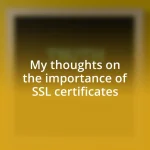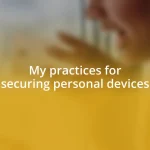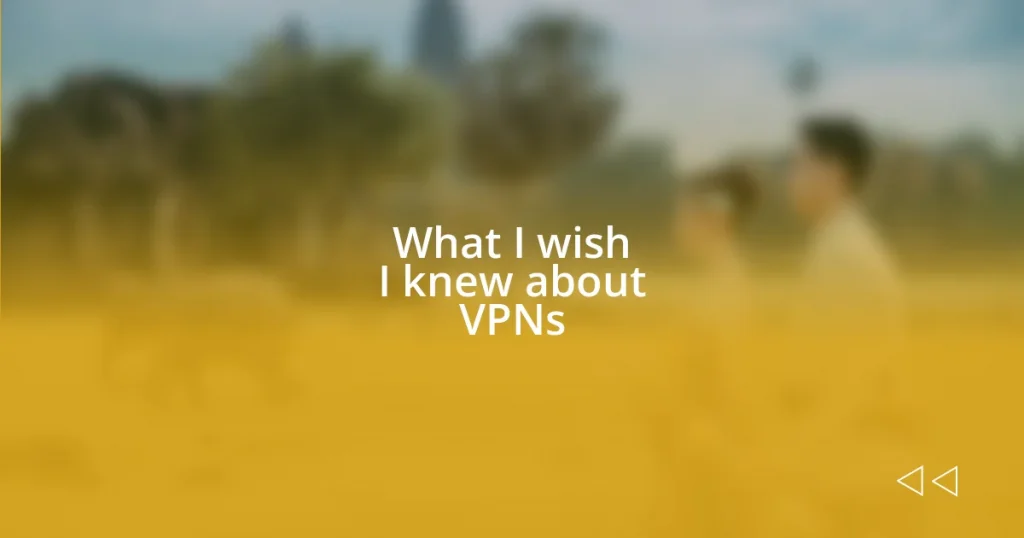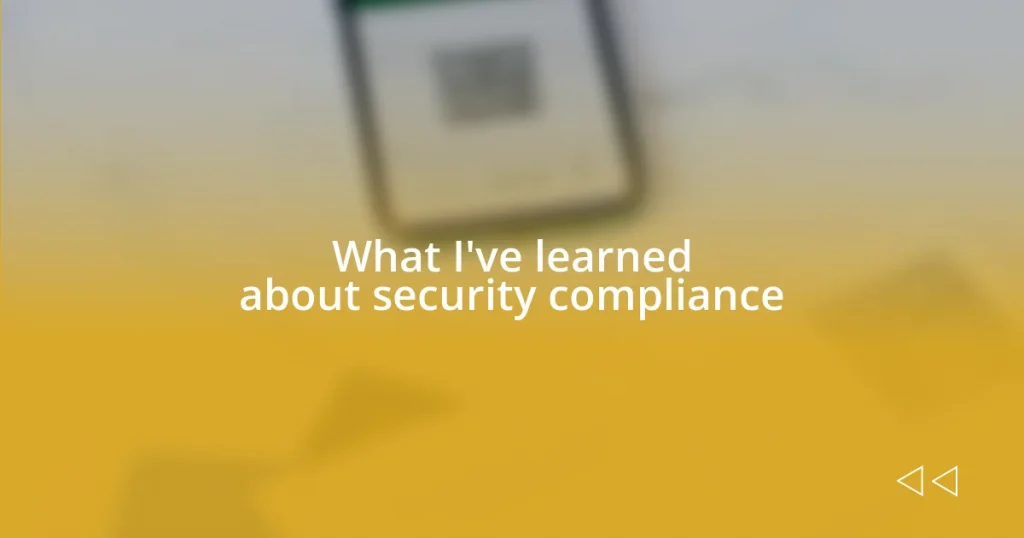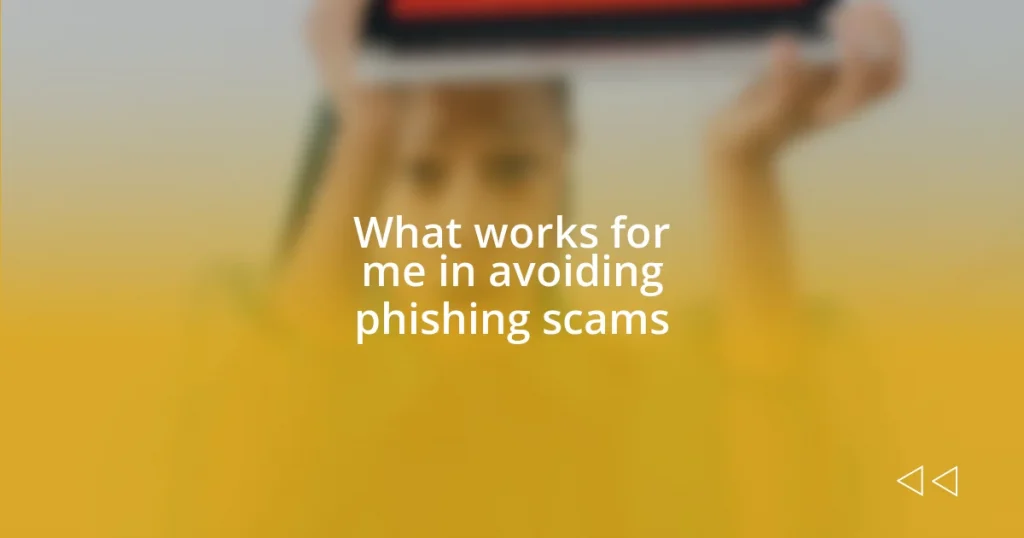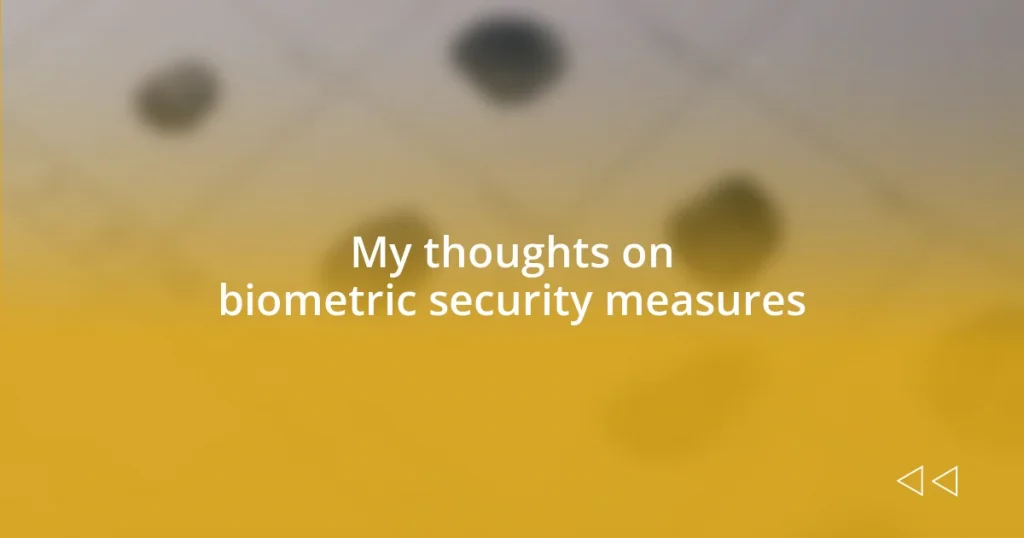Key takeaways:
- A VPN provides a secure connection, protecting online activities, especially on public Wi-Fi, while also allowing access to geo-restricted content.
- Misconceptions about VPNs include the belief that they offer complete anonymity and consistent high-speed connections; the quality of the service greatly affects performance.
- When choosing a VPN, consider encryption protocols, the presence of a kill switch, and a strict no-logs policy to ensure your privacy and security.
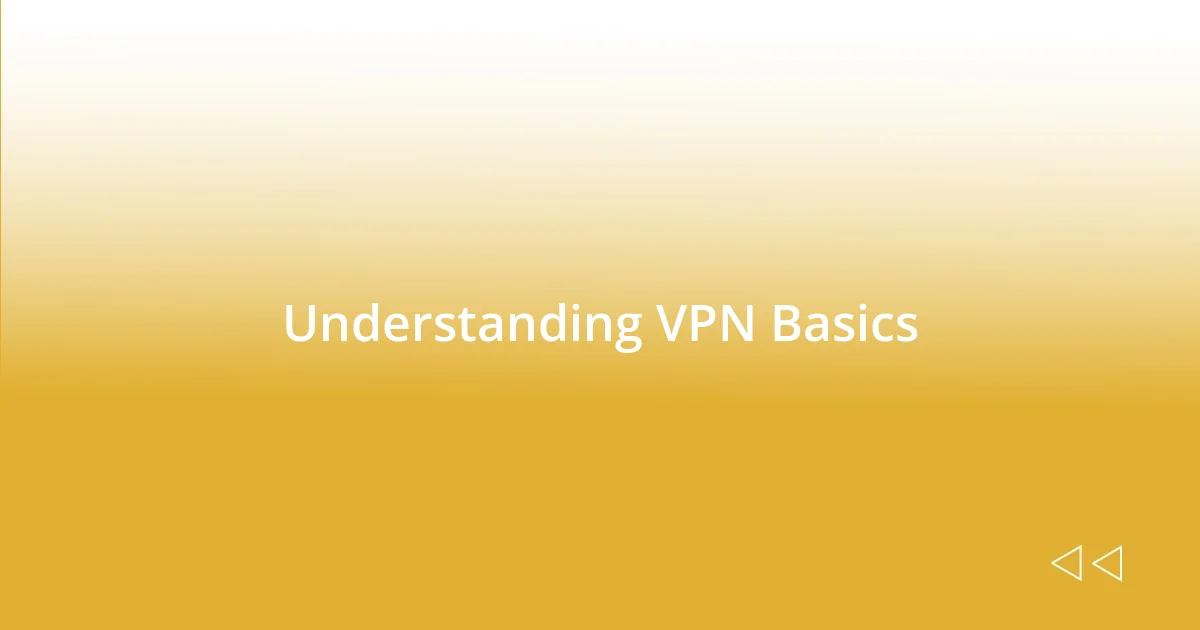
Understanding VPN Basics
When I first heard about VPNs, I remember thinking, “What’s the big deal?” It wasn’t until I experienced a frustrating moment trying to access a streaming service while traveling that I truly understood their value. A VPN, or Virtual Private Network, essentially creates a secure connection between your device and the internet, helping shield your online activity from prying eyes.
Initially, the technical jargon around VPNs seemed daunting. However, it’s simply about routing your internet traffic through an encrypted tunnel, keeping your data confidential. I found that knowing my information was protected gave me peace of mind, especially when using public Wi-Fi. Have you ever felt uneasy connecting to unsecured networks? Trust me, with a VPN, those worries can fade away.
One thing I wish I had grasped sooner is how VPNs can help bypass geo-restrictions. While researching for a recent project, I was frustrated by content that was unavailable in my region. Using a VPN not only allowed me to access that content but also opened up a world of online possibilities I didn’t know existed. It made me wonder—what else am I missing out on without one?
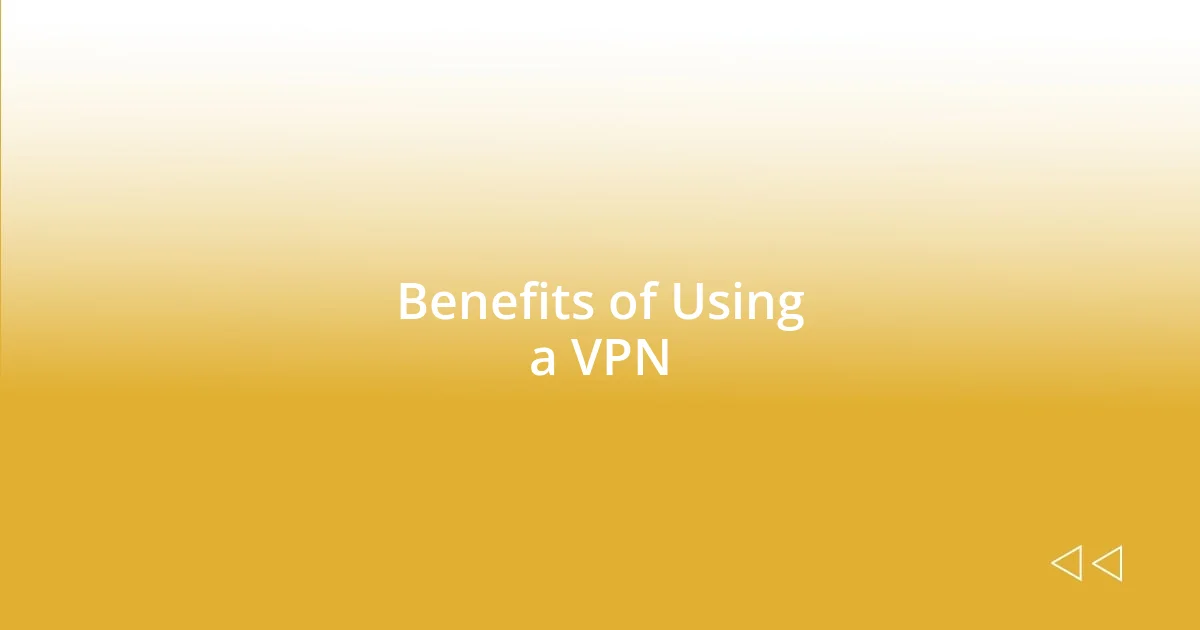
Benefits of Using a VPN
Using a VPN comes with a host of benefits that significantly enhance your online experience. One primary advantage is the robust security that VPNs offer, particularly when connecting to public networks. I still recall a time at a coffee shop when I was working on an important document. The thought of someone potentially intercepting my data had me on edge. It was a relief to realize that my VPN was ensuring my connection was encrypted, shielding my personal information from any lurking threats.
Another big plus is the freedom VPNs provide in terms of online access. I remember planning a vacation, and while browsing for restaurants and attractions, I encountered an endless list of reviews I couldn’t read due to regional restrictions. Once I activated my VPN, I not only accessed those reviews but also discovered fascinating local insights that made my trip all the more enjoyable. This experience highlighted how a VPN empowers you to explore the internet without boundaries.
Lastly, a VPN can also improve your online gaming experience by reducing lag and allowing you to connect to servers in different regions. I once participated in an online game tournament, and using my VPN allowed me to connect to a faster server overseas. I noticed a significant drop in latency and better performance overall. Such practical benefits truly showcase how a VPN can enhance not just security, but also the quality of your internet experience.
| Benefit | Description |
|---|---|
| Enhanced Security | Encrypts your data on public networks, protecting your personal information. |
| Bypass Geo-Restrictions | Allows access to content that may be blocked in your region. |
| Improved Gaming Experience | Reduces lag by connecting to servers in different regions, enhancing performance. |
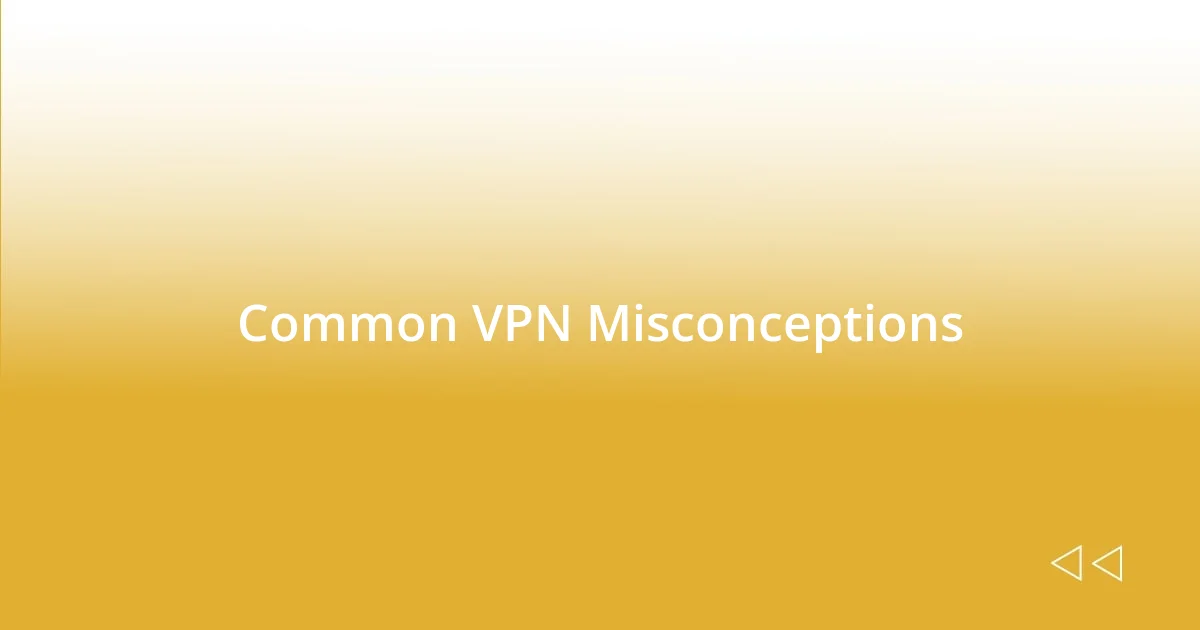
Common VPN Misconceptions
It’s fascinating how many misconceptions swirl around the topic of VPNs. One common belief is that a VPN will make you completely anonymous online. While a VPN does provide a layer of privacy by masking your IP address, it doesn’t make you invisible. I remember when I first delved into the world of VPNs; I thought I could roam the internet without a trace. Discovering that my online activities were still traceable left me feeling a bit vulnerable, reminding me of the importance of understanding the limits of technology.
Another misconception is that VPNs automatically guarantee high-speed internet. In my experience, I’ve navigated various situations where my connection slowed down, especially when connecting to distant servers. It’s essential to choose a quality VPN provider; otherwise, you might find yourself frustrated, just like I did during a crucial work presentation when my video call kept lagging. Here are some common misconceptions worth noting:
- Completely Anonymous: A VPN doesn’t offer full anonymity; your activities can still be monitored by your ISP or online services.
- Always Fast: Not all VPNs provide consistent high-speed connections; server distance and quality matter.
- One-Size-Fits-All: Different VPNs cater to different needs—what works for streaming might not be ideal for gaming.
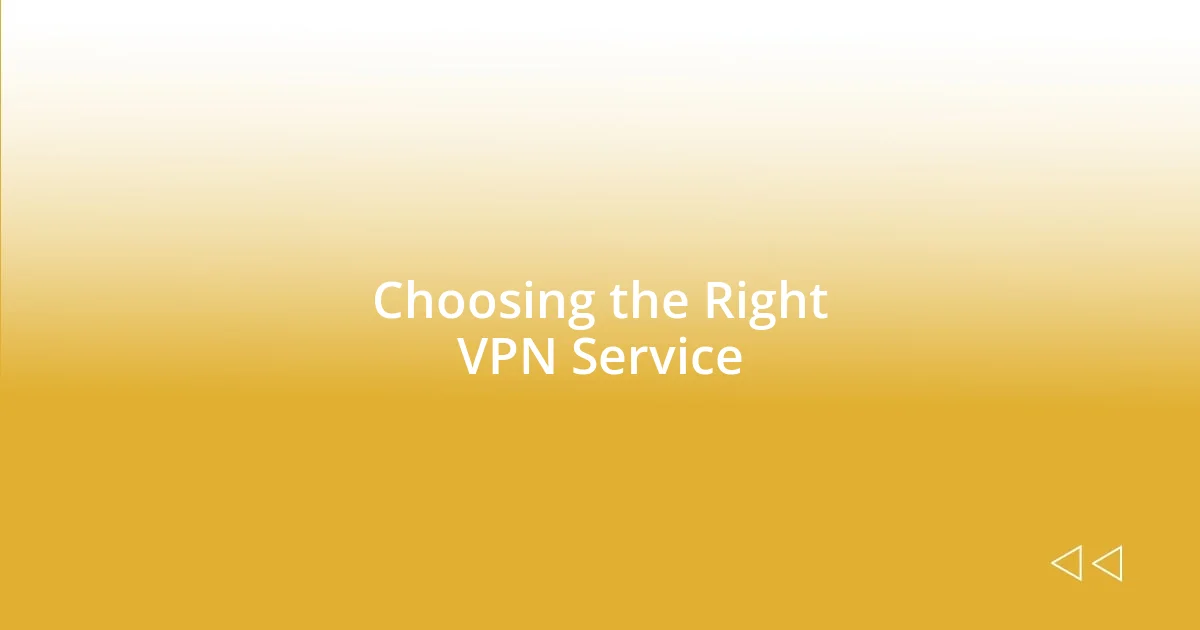
Choosing the Right VPN Service
When choosing the right VPN service, you want to ensure it aligns with your specific needs. Personally, I’ve learned that not all VPNs are created equal. For instance, I once subscribed to a highly-rated VPN, only to realize it didn’t support the streaming services I wanted. Trust me, facing those pesky geo-restriction error messages was frustrating and made me wish I had done my homework first!
I can’t stress enough how vital it is to check a VPN’s server locations and speed offerings. One time, I was traveling abroad and needed to access my favorite shows back home. I assumed that a popular VPN would have enough servers everywhere, but I quickly found out their closest server was miles away, causing huge lag. It’s crucial to choose a provider with ample options to avoid such hiccups.
Lastly, look for transparency regarding privacy policies. I remember my apprehension when I stumbled upon a VPN that had unclear terms regarding data retention. I value my privacy, and knowing how my data is handled is non-negotiable. A good VPN should proudly display its commitment to keeping your online activities private, so don’t hesitate to dig deep into their policies. Would you trust a service that isn’t upfront about how it protects your information? I certainly wouldn’t!
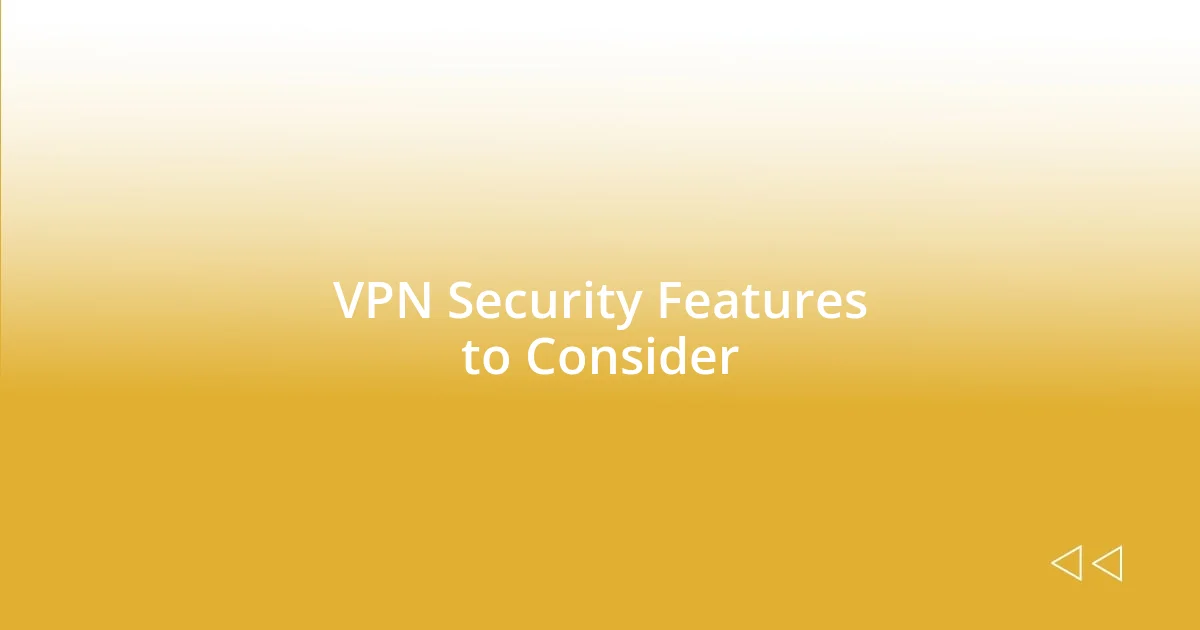
VPN Security Features to Consider
When evaluating VPN security features, one aspect I always consider is the encryption protocol used. Early in my VPN journey, I didn’t pay much attention to this and opted for the most popular option without checking specifics. I later learned that strong encryption, like OpenVPN or WireGuard, significantly boosts security, especially when on public Wi-Fi. The technology behind these protocols is complex, but simply put, the stronger the encryption, the harder it is for anyone to intercept your data. Imagine sipping coffee at a crowded café and feeling secure knowing your information isn’t easily compromised.
Another feature I can’t overlook is a VPN’s kill switch. One day, while working on a project, my connection dropped unexpectedly. Luckily, I was using a VPN with a reliable kill switch, which automatically blocked all internet traffic until the secure connection was re-established. This feature can be a lifesaver because, without it, I would have been at risk of exposing sensitive information without even realizing it. Have you ever thought about what happens to your data when your VPN connection suddenly fails? I used to think it was just a minor inconvenience until I experienced firsthand how crucial that feature can be.
Lastly, I’ve found that a strict no-logs policy is essential. When I first started using a VPN, I assumed that all providers would respect my privacy. However, after researching, I realized some VPNs maintain records of user activity, which could be shared with third parties if requested. This realization left me uneasy. If a service isn’t committed to not storing logs of what you do online, how can you trust them with your data? I’ve since become a firm believer in choosing only those VPNs that transparently communicate their no-logs policies, as it gives peace of mind knowing my online footprint remains low.



